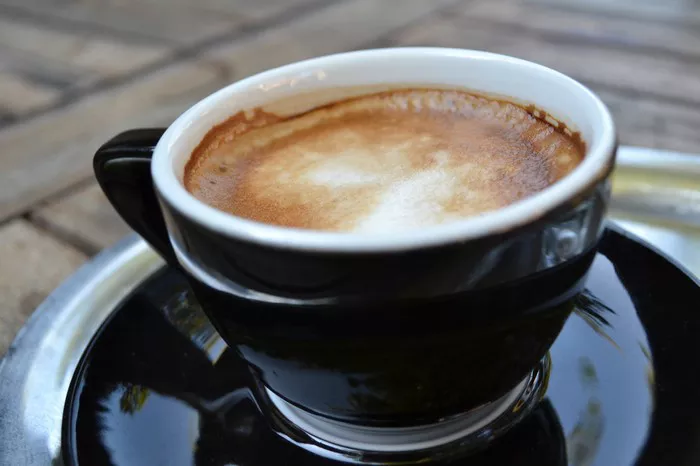In the realm of luxury beverages, few concoctions command as much attention and intrigue as the world’s most expensive coffee. This elixir, often surrounded by mystique and cultivated with meticulous care, has become a symbol of refined taste and indulgence. In this comprehensive exploration, we will delve into the origins, production processes, and unique characteristics that make the most expensive coffee a coveted treasure among enthusiasts and connoisseurs alike.
Kopi Luwak
At the zenith of the coffee hierarchy stands Kopi Luwak, a rare and prized brew that fetches astronomical prices in the global market. This Indonesian gem is cultivated with a process so unique and exotic that it has captured the imagination of coffee aficionados worldwide.
The Civet’s Contribution
Kopi Luwak owes its distinctiveness to the Asian palm civet, a small mammal indigenous to Southeast Asia. The civet plays a crucial role in the production process by consuming ripe coffee cherries and excreting the beans. The digestive enzymes of the civet alter the chemical composition of the beans, resulting in a flavor profile unparalleled in the world of coffee.
Harvesting and Production Challenges
The labor-intensive nature of Kopi Luwak production contributes significantly to its exclusivity and, consequently, its high price. Harvesting the beans requires meticulous attention to detail, as only the finest cherries consumed and excreted by the civet are deemed suitable for production. The subsequent processing involves thorough cleaning, fermentation, and roasting to bring out the unique qualities inherent in these beans.
Taste Sensation: A Symphony of Flavors
What sets Kopi Luwak apart is its remarkably smooth and nuanced flavor profile. The coffee is often described as having a velvety texture with low acidity, coupled with subtle hints of chocolate, caramel, and tropical fruits. The rarity of this coffee, combined with its extraordinary taste, elevates it to the echelons of the most expensive and sought-after brews in the world.
Black Ivory Coffee
While Kopi Luwak reigns supreme, another contender for the title of the world’s most expensive coffee emerges from the heart of Thailand – Black Ivory Coffee. This unconventional brew takes a distinctive approach to coffee production, challenging traditional methods and offering a unique flavor experience.
Elephantine Elegance
Black Ivory Coffee owes its name and uniqueness to the involvement of elephants in the production process. Thai Arabica beans are meticulously selected and fed to elephants at the Golden Triangle Asian Elephant Foundation. The beans undergo a natural fermentation process in the elephants’ digestive tracts, where enzymes and acids impart a distinct flavor to the beans.
Intricate Production Process
The production of Black Ivory Coffee is an intricate dance of nature and human intervention. After being excreted by the elephants, the beans are carefully collected, cleaned, and sun-dried. The result is a coffee with low acidity, a syrupy body, and complex flavor notes that include chocolate, fruit, and a hint of spice.
Ethical and Sustainable Practices
Beyond its distinctive taste, Black Ivory Coffee stands out for its commitment to ethical and sustainable practices. The collaboration with the Golden Triangle Asian Elephant Foundation not only contributes to the well-being of elephants but also supports local communities and conservation efforts.
St. Helena Coffee
Venturing into the Atlantic Ocean, we find a small, remote island with a coffee tradition that rivals the best in the world. St. Helena Coffee, grown on the island of St. Helena, presents a unique combination of terroir, climate, and history that contributes to its exclusivity.
Historical Roots
St. Helena’s coffee industry dates back to the early 18th century when the British East India Company established the island as a crucial stopover point. The coffee plantations flourished in the island’s volcanic soil, producing beans with a distinct flavor profile that reflects the island’s isolation and natural richness.
Island Terroir and Unique Growing Conditions
The geographical isolation of St. Helena, located in the South Atlantic Ocean, has shielded its coffee crops from many pests and diseases. Combined with the island’s volcanic soil and a unique microclimate, St. Helena Coffee embodies a harmonious blend of earthy, fruity, and wine-like flavors.
Exclusivity and Limited Production
St. Helena Coffee’s limited production is a key factor in its high price tag. The island’s small size and the meticulous cultivation practices contribute to a scarcity that enhances the coffee’s desirability. The beans are hand-picked, sun-dried, and carefully processed, ensuring that each cup reflects the rarity and quality associated with this unique coffee.
Conclusion
As we traverse the globe in search of the most expensive coffees, it becomes evident that each brew is a testament to the dedication, creativity, and innovation of coffee producers. Whether it’s the digestive alchemy of the civet, the pachyderm-assisted fermentation, or the island isolation of St. Helena, these coffees share a common thread – an unwavering commitment to excellence.
In the world of luxury and indulgence, the most expensive coffees transcend the boundaries of ordinary brewing. They represent a fusion of nature’s wonders, human ingenuity, and the pursuit of unparalleled flavor experiences. As you embark on your journey through the realms of Kopi Luwak, Black Ivory Coffee, and St. Helena Coffee, savor each cup as a testament to the extraordinary heights that the world of coffee can reach.


